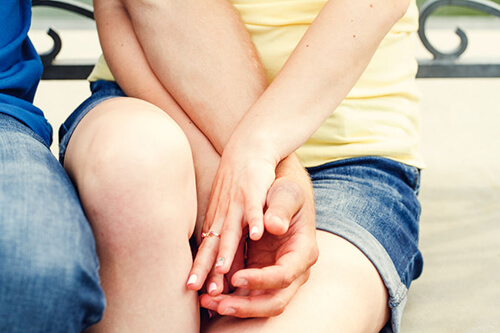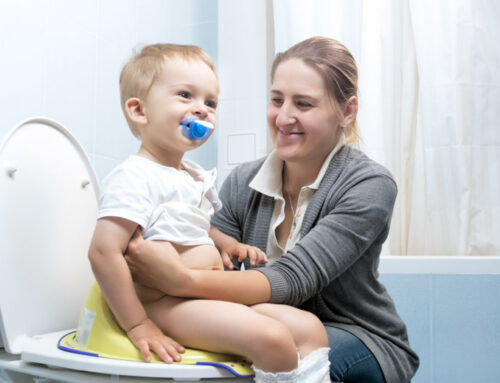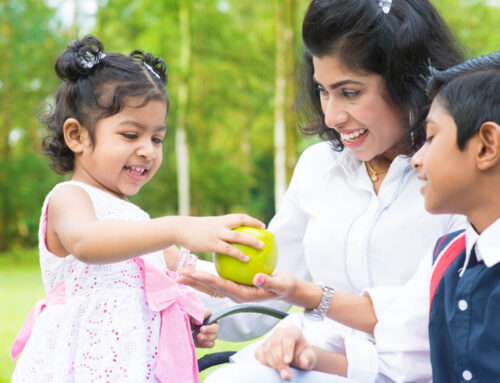To hush or not to hush!
Does it seem to you that the expression of sexual behavior is higher in the current generation? Do you feel that your teenager spends most of his time on the Internet and you wish you knew what he was watching? Do you wish you knew the right way to speak to your growing children about sex and related issues but don’t know how you should? The majority of parents, caregivers, and teachers would probably say, “Yes”.
When is the right time?
As a parent or caregiver, it is extremely important for you to know about your child’s sexual growth, so as to differentiate between normal and erratic sexual behavior. This will equip you to help your child during this turbulent time of physical and emotional confusion. Information that your child will receive from you or other sources will be crucial in forming the attitudes and opinions that your child will have about sex and sexuality. Hence it is of utmost importance that the information and values your child receives and assimilates about sex at the early stages of his or her life must be unbiased.
As children grow physically and emotionally, they begin to indulge in sexual play. This is as natural as it is healthy. Their initial touch is mostly based around curiosity even though it might give them pleasure (boys experience erections from a very early age.) The functions of body parts coupled with curiosity are the starting point of many of the touches. However, by the age of 10-12, they begin to have more clarity on sexual feelings and now begin to understand relations and expectations that come with them. Even though the age of puberty is fast dropping, by the age of 12 -14 on average, girls will start menstruation. Around this time masturbation will become more frequent or routine for both girls and boys.
Overexposure is harmful
It may be prudent to say that all forms of sexual exposure are inappropriate for children aged 10 and younger. Any such exposure might lead to “sexually reactive” children. The sexually reactive child may engage in a variety of sexual behaviors which isn’t appropriate for their age, as a fallout of his or her own exposure. This may lead to enacting or engaging in excessive sexual play including gestures or comments. For this reason, it is important to keep a tab on the various media your child is exposed to minutely, especially in the formative years.
Sources of exposure
There are a lot of factors that go towards forming your child’s values and attitudes around sexuality.
More than ever before, it’s very easy for anyone to have access to pornographic or sexual content of all types via the internet. Children are being given mobile phones at very early ages (and this is statistically decreasing every year). So curtailing access is becoming increasingly difficult. Because if you don’t give your child a phone, one of their friends will surely have a phone and they will use that to satisfy their curiosity. This makes it difficult for parents because online sources may not provide correct information to growing minds and may provide too much access to adult content. So parents need to ensure they can provide the right information and help children develop the right attitudes about sex.
Begin when the time is ripe
While you worry about overexposure to sexually related information, you must bear in mind that as your child draws close to puberty, it is important to impart sex education (also called sexuality education or sex and relationships education). Sex education is immensely important as it will aid the process of learning about and eventually forming beliefs and values about sex; and will eventually be the backbone of relations and intimacy that your child will develop later on in life. Most effective sex education should begin early enough so that it helps in building patterns of behavior.
Sex education that starts post-puberty might not be as effective just for the simple reason that the period of confusion might not be guided well and behavior prototypes might have already been formed by the child. The exact age to start any sexual conversation with your child is highly unique. This will depend entirely on how your child is developing physically, emotionally, and intellectually. Also, the level of understanding that your child has will be essential in the process of sex education so as to help you find the best way in which you can discuss the same with him.
If you find your child surfing porn or exploring their own self, don’t show disgust or call the child names. They are only doing what comes naturally to them. Instead, let them know that exploring is a private activity and must be done alone. If you scream at them this could surely close down your line of communication with them. Also, tell them that porn may depict sexual acts in a twisted and unnatural/unreal manner and hence may not be good to watch.
Content and context
The content of sex education is as important, as to how the topic is being discussed with the child. This will vary with the child’s age and level of maturity. Besides, the imparter of the information and the situation in which the information is being given is of equal importance. You needn’t wait for the right time to talk. Sometimes a child will bring up the topic at the strangest of times and his or her curiosity must be fulfilled at the same time. For example, if at bedtime your 7-year-old wants to know if it’s true that girls and boys must kiss to have babies, then you must use the opportunity to explain to the baby in simple words, depending on the child’s age. Exact biological terms and explicit details may be given as your child matures.
Never laugh off a child’s curiosity, as it may discourage him or her to approach you in the future. Open channels of communication will only help further in clearing doubts your child may have in the future and protecting them from abuse, exploitation, unintended pregnancies, various sexually transmitted diseases including HIV and AIDS.
False notions
As a parent, you may find it difficult to broach the topic of sexuality with your children, but you must bear in mind that young people get information about sex and sexuality from a wide range of sources as discussed above. Despite communication and monitoring, it is virtually impossible to be sure that your child doesn’t have any wrong notions, which might prove to be fatal. If your child has heard that the use of contraceptives will be a barrier to pleasure during intercourse, then in that case such false information must be tackled immediately. Sex education in this context will help in correcting wrong beliefs that the child may have formed. While explaining the falseness of the notion, you might also want to add how condoms will protect the child not only from unwanted pregnancy but are also effective against STD’s
Emotions play a part
As puberty begins to set in, you must tell your child about the various physical and emotional changes they will be going through. The significance of menstruation and how it will lead to breast development coupled with hair and other body changes. At this time it is crucial for the child to know that what is happening to them is natural. This is the process of growth for all and that there is nothing wrong with them. Boys and girls alike must be reassured that they will start to feel an attraction towards the other sex.
Teach your child not to get physically involved with strangers. They must always keep a distance from people they don’t know because you never know what a stranger has in mind. Use stories or incidents from the newspaper to drive home the point. This will not only keep them at bay from molestations but also HIV/AIDS and other such sex-related diseases. The children must know that this normal growth will culminate in intimacy and solid relations when they are ready as adults. You must carefully explain the reason as to why even though they have urged for physical encounters, they are not yet prepared.
Time and again explain to your child that emotional maturity is as important as physical maturity to get intimate. Explain to teenagers how certain hormones can trigger emotional roller coaster rides for them when they are physically intimate, and encourage them to wait for the right time.
Early-age sexual exposure or interaction may leave mental scars in addition to physical ones, and you should stay close to your child to ensure that this doesn’t happen.
What to Say and When to Say It
Infants and Toddlers (0–2 years) and Preschool Children (3–4 years): Always teach your child the correct names of all the parts of their body (penis/vulva). Even at such an early age, they are assimilating information about girl and boy differences.
Young Children (5–8 years): By this age, your child has more understanding and is keen on learning more about life. They may already have questions about why a woman gets pregnant but a man doesn’t. All questions must be addressed truthfully in a child-friendly/age-relevant manner.
Preteens (9–12 years): This age is the age of onset of puberty when your child will go through various changes, both physically as well as emotionally. They will start paying added attention to their appearances and their bodies, as they will notice them changing or might be the ones not experiencing the same changes as their peers. An open line of communication from the earliest ages will help them to come to you with their concerns. This is also the right time to talk about intercourse and the various fallouts such as pregnancies and diseases. Keep reinforcing your values as you discuss the perils of sexual encounters at such an early age.
Teens (13–19 years): If you feel that it is not the right thing to have sex out of marriage let your child know. You must give your child very clear values and beliefs at this age for them to base their behavior pattern around. This will form the basis on which your child will further build his attitudes
The right values
With age and maturity, you must start discussing various values that you have about sex. How intercourse isn’t a flimsy thing but only for that someone special. Feelings of love and lust are most confusing to a growing child and you must help him or her to differentiate these. You could use various characters and instances from television or movies as icebreakers to discuss sexuality issues to keep reinforcing what you believe in. Also, instances of real-life people and how wrong choices have lead to disasters in their life will help your children learn about certain implications of early sex or fidelity-related issues.
Homosexuality is not a taboo
A majority of the children are not homosexual. However,r they may have concerns and fears about homosexuality. They may sometimes wonder “am I gay/lesbian”? These kinds of thoughts can frighten teens. These are fleeting concerns and if the child is heterosexual, these concerns will go away with time. However, those who really are homosexual may have trouble coping with it. Not being a heterosexual may be a cause of worry and depression to many young adults, the fear of not getting accepted being the greatest of them all.
You must assure your child that no matter what his or her preference in terms of sex, you will always love them. Sometimes these kinds of feelings cause children extreme depression and can lead them to develop suicidal tendencies. A positive attitude from you will help your child greatly. Always remember that there is nothing to be ashamed of about what is natural. Attempts to impose narrow moralistic views about sex and sexuality on young people through sex education have always failed. Hence adopt a truthful approach and always keep all communication lines open.
This however is a complex subject especially from the point of view of growing children and how they and their family can deal with it – and merits a separate article.
Click here for Case Study on Teens and Sex
Top Questions on Teens and Sex
- I am worried that starting sex education early might encourage my son to have sex? If he doesn’t know then why must I speak to him about it?
- I am a single father of a daughter and I am not very comfortable discussing sex or related issues with her. Who else can I rely on to talk to my child, as she is growing up and needs to understand the changes in her body?
- My 4 year old son has been rubbing himself very often. I have noticed that at any point if he is without his underwear, he will start feeling himself. When I first noticed this I was very upset and I scolded him. Did I do the right thing?
- My 14 year old son spends an average of 5-6 hours a day on the Internet. Should I curb Internet time or monitor what my son is doing on the Internet?
- Is sex education important or should I let my child find out about sex on his or her own?
- At what age must we start sex education?
- Are there any books on sex education?
- At what age can we let the children use the internet unsupervised?
- Is homosexuality learned or inherited?
- What should I do when my child tells me he is homosexual? What should I do if I suspect/find out that my child is homosexual?
- Is homosexuality a disease? Is it curable?
- What age is OK for my child to be attracted to the opposite sex?









Leave A Comment